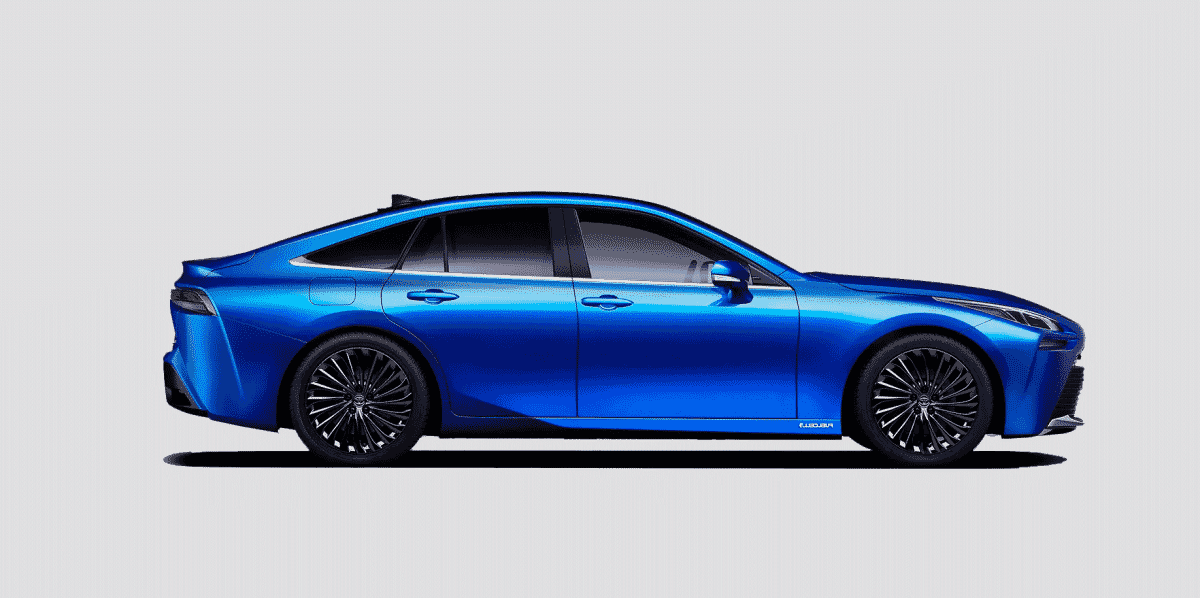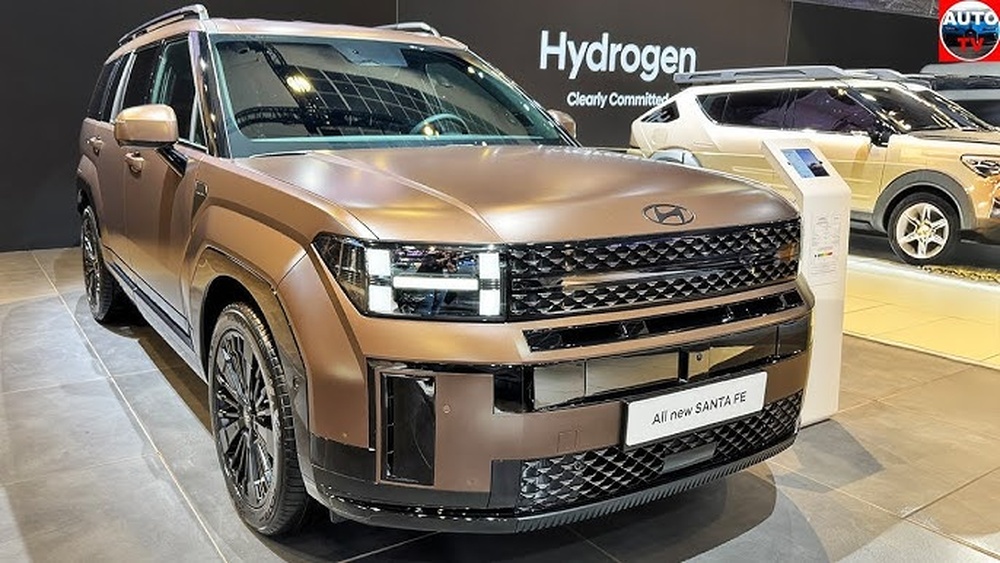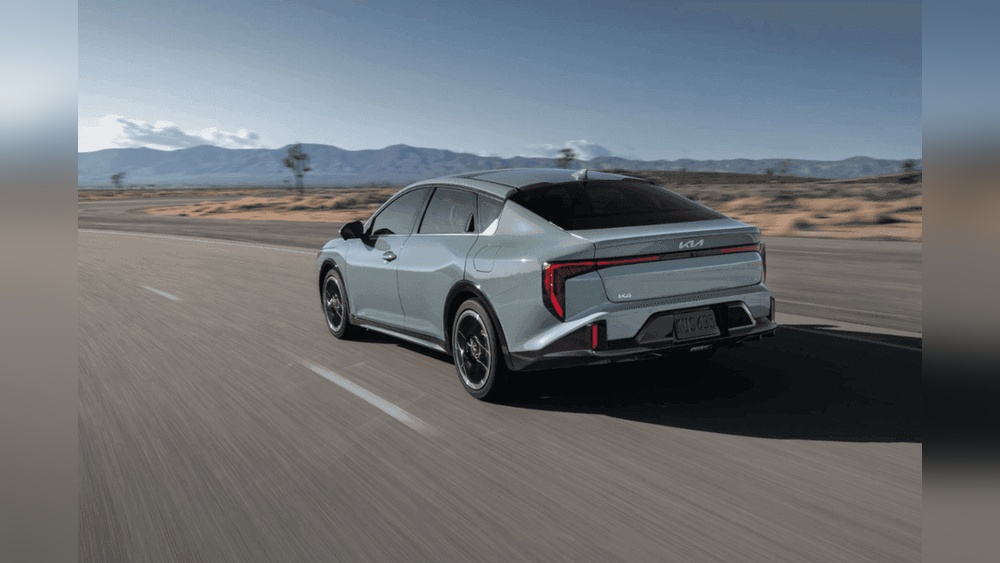Are you ready to discover the future of SUVs? The best hydrogen SUVs of 2025 are set to change how you think about power, performance, and sustainability.
If you want a vehicle that offers quick refueling, zero emissions, and impressive range, hydrogen SUVs might be just what you need. But with new models arriving and technology evolving fast, it can be hard to know which one fits your lifestyle and budget.
You’ll find clear, honest insights about the top hydrogen SUVs coming this year, helping you make a smart choice for your next ride. Keep reading to find out which models stand out and why they could be your perfect match.

Credit: www.opumo.com
Hydrogen Suv Market In 2025
The hydrogen SUV market in 2025 shows strong signs of growth. More automakers invest in clean fuel technology. This shift aims to reduce pollution and offer new driving options. Hydrogen SUVs combine power with eco-friendliness. Their appeal grows as infrastructure improves and costs drop.
Consumers want vehicles with longer range and quick refueling. Hydrogen SUVs meet these needs better than many electric cars. Expect wider availability and more choices in the coming years. The market is evolving fast with fresh models and innovations.
Emerging Models To Watch
Several new hydrogen SUVs will debut in 2025. These models offer improved range and comfort. Some feature advanced fuel cell technology for better efficiency. Watch for designs that blend style with utility. These SUVs aim to attract both families and tech enthusiasts.
Key Manufacturers Leading The Charge
Major car brands focus heavily on hydrogen SUVs now. Toyota remains a top player with its Mirai-based models. Hyundai also pushes boundaries with its NEXO SUV. Other companies like Honda enter the market with new offerings. These manufacturers invest in fuel cell research and production.
Market Growth And Trends
The hydrogen SUV market grows steadily each year. Sales increase as public charging stations expand. Governments support hydrogen through incentives and grants. Consumers show rising interest in zero-emission vehicles. Trends point to more affordable prices and wider adoption soon.

Credit: www.youtube.com
Top Hydrogen Suvs To Consider
Hydrogen SUVs are gaining attention for their clean energy and long driving range. These vehicles use hydrogen fuel cells to produce electricity. This means zero harmful emissions while driving. The market for hydrogen SUVs is expanding as technology improves. Here are some top models for 2025 that stand out.
Each offers unique features and benefits for eco-friendly drivers. Let’s explore the best hydrogen SUVs to consider this year.
Hyundai Nexo
The Hyundai NEXO is a popular hydrogen SUV known for its efficiency. It offers a range of about 380 miles on a full tank. The NEXO features advanced safety systems and a spacious interior. Its fuel cell system is quiet and smooth. This SUV supports fast refueling, taking around five minutes. Hyundai invests heavily in hydrogen technology, making NEXO a reliable choice.
Honda’s Hydrogen Suv
Honda’s hydrogen SUV is designed with practicality and performance in mind. It has a strong fuel cell system with a range near 360 miles. The vehicle is built for comfort with modern tech features. Honda focuses on easy handling and good driving dynamics. This SUV is mostly available in select markets, reflecting Honda’s cautious rollout.
Other Notable Models
Besides Hyundai and Honda, other brands are developing hydrogen SUVs. Toyota is testing new fuel cell models with improved range. Mercedes-Benz plans to launch luxury hydrogen SUVs soon. Some smaller manufacturers are creating affordable, compact hydrogen SUVs. These vehicles aim to expand hydrogen options for various buyers. The hydrogen SUV market in 2025 is diverse and growing fast.
Fuel Cell Technology In Suvs
Fuel cell technology is shaping the future of SUVs. These vehicles use hydrogen to generate electricity, offering an alternative to gasoline engines. Hydrogen fuel cells produce power through a chemical reaction, with water as the only emission. This technology supports the push for cleaner, greener transportation.
How Hydrogen Fuel Cells Work
Hydrogen fuel cells combine hydrogen gas with oxygen from the air. This reaction creates electricity, heat, and water. The electricity powers the SUV’s electric motor. Unlike batteries, fuel cells produce energy continuously as long as hydrogen is supplied. The only byproduct is clean water vapor.
Advantages Over Traditional Engines
Hydrogen SUVs emit zero harmful gases. They reduce carbon footprints significantly. Fuel cells offer quick refueling times, similar to gasoline cars. These vehicles provide smooth, quiet rides with strong torque. They also perform well in cold weather, unlike some electric batteries.
Technological Innovations For 2025
New materials improve fuel cell durability and efficiency. Advances in hydrogen storage increase driving range. Compact fuel cell systems allow more interior space. Smart energy management enhances power use and battery life. Automakers focus on lowering costs to boost adoption. Infrastructure development is expanding hydrogen refueling networks worldwide.

Credit: www.jdpower.com
Environmental Benefits
Hydrogen SUVs in 2025 offer significant environmental benefits. They provide a cleaner alternative to traditional gasoline vehicles. These vehicles help reduce pollution and protect natural resources. Their impact on the environment is a key reason for their growing popularity.
Zero Emissions Driving
Hydrogen SUVs produce no harmful tailpipe emissions. Their only emission is water vapor. This means zero carbon dioxide, nitrogen oxides, or particulate matter. Such clean driving helps fight climate change. It also reduces the health risks linked to air pollution.
Renewable Hydrogen Sources
Hydrogen fuel can come from renewable energy. Electrolysis uses electricity from wind or solar power. This process splits water into hydrogen and oxygen. Using renewables makes hydrogen production cleaner. It lowers the overall carbon footprint of hydrogen SUVs.
Impact On Urban Air Quality
Hydrogen SUVs improve air quality in cities. They do not emit pollutants that cause smog or respiratory problems. Cleaner air benefits everyone, especially children and the elderly. Reducing urban pollution creates healthier, safer communities.
Challenges Facing Hydrogen Suvs
Hydrogen SUVs offer a clean alternative to traditional vehicles. Yet, they face several challenges that slow their growth. These hurdles affect drivers, manufacturers, and the environment alike. Understanding these issues helps explain why hydrogen SUVs are not yet common on roads.
Limited Refueling Infrastructure
Hydrogen refueling stations are few and far between. Most cities have none or just one station. This scarcity makes long trips difficult for hydrogen SUV owners. Building new stations costs a lot of money and time. Without more stations, many drivers hesitate to switch to hydrogen vehicles.
High Vehicle And Fuel Costs
Hydrogen SUVs usually cost more than gasoline or electric cars. The technology inside these vehicles is complex and expensive. Producing hydrogen fuel also requires costly equipment and processes. These high prices make hydrogen SUVs less affordable for many buyers. Lower costs are needed to boost their popularity.
Storage And Safety Concerns
Hydrogen is highly flammable and must be stored carefully. It needs strong tanks that can hold gas at very high pressure. These tanks add weight and cost to the vehicle. Safety measures increase manufacturing complexity. Public concerns about hydrogen safety still exist, even though modern designs are very secure.
Comparing Hydrogen Suvs To Electric Vehicles
Hydrogen SUVs and electric vehicles (EVs) offer clean alternatives to traditional gas-powered cars. Each uses different technology to reduce emissions. Comparing them helps buyers understand which suits their needs best. Several factors like energy use, driving range, and upkeep play key roles in this choice.
Energy Efficiency Differences
Electric vehicles convert electricity directly into motion. This process is very efficient with little energy loss.
Hydrogen SUVs use fuel cells to turn hydrogen gas into electricity. This step adds energy loss, making them less efficient overall.
EVs typically use 60%-70% of the energy from the grid. Hydrogen SUVs use around 25%-35% of the energy from hydrogen production.
Energy loss in hydrogen comes from producing, storing, and transporting hydrogen fuel.
Range And Refueling Time
Hydrogen SUVs usually have a longer driving range than many electric SUVs. They can travel around 300-400 miles on a full tank.
Refueling a hydrogen SUV takes about 3-5 minutes. This is similar to filling a gas tank.
Electric SUVs can range from 200 to 370 miles per charge. Charging times vary widely, from 30 minutes to several hours.
Fast charging stations are growing but still less common than gas stations.
Maintenance And Reliability
Electric vehicles have fewer moving parts, leading to lower maintenance needs.
Hydrogen SUVs have complex fuel cell systems. These require specialized care and may cost more to fix.
Both types avoid oil changes and reduce brake wear thanks to regenerative braking.
Long-term reliability data on hydrogen SUVs is limited due to their newer market presence.
Future Outlook For Hydrogen Suvs
Hydrogen SUVs are gaining attention as a clean alternative to traditional vehicles. Advances in technology and growing environmental concerns drive this interest. The future holds promising changes that could make hydrogen SUVs more common and practical. Challenges remain, but progress is steady in many areas.
Government support and new technologies will shape how hydrogen SUVs evolve. Mass adoption depends on solving infrastructure and cost issues. This section explores what the future may bring for hydrogen-powered SUVs.
Upcoming Technologies And Improvements
Fuel cell technology is becoming more efficient and compact. New materials reduce the weight and cost of hydrogen tanks. Improved sensors enhance safety during storage and refueling. Advances in hydrogen production aim to use renewable energy sources. These changes will boost the driving range and reduce refueling time. The focus is on making hydrogen SUVs user-friendly and reliable.
Government Policies And Incentives
Many countries offer incentives to encourage hydrogen vehicle use. These include tax breaks, subsidies, and grants for buyers and manufacturers. Governments invest in building hydrogen refueling stations nationwide. Regulations are evolving to support cleaner transportation options. Policies aim to reduce carbon emissions and promote green energy. Strong government backing can lower costs and increase market availability.
Potential For Mass Adoption
Hydrogen SUVs could become more affordable as technology advances. Expanding refueling networks will make these vehicles practical for daily use. Public awareness about hydrogen benefits is growing steadily. Collaboration between automakers, energy providers, and governments is key. Widespread adoption depends on solving cost and infrastructure challenges. The future may see hydrogen SUVs as a common choice for clean travel.
Frequently Asked Questions
Is There A Downside To Hydrogen Cars?
Hydrogen cars face high costs, limited refueling stations, energy-intensive hydrogen production, low efficiency, and safety concerns from flammability and storage challenges.
How Much Will Hydrogen Fuel Cost In 2025?
Hydrogen fuel prices in 2025 are expected to range between $10 to $15 per kilogram. Costs depend on production methods and infrastructure growth. Increased renewable hydrogen production may reduce prices, but limited refueling stations keep costs relatively high compared to gasoline or electric fuel.
Who Is The Leader In Hydrogen Technology?
Toyota leads in hydrogen technology with advanced fuel cell vehicles and extensive research in sustainable hydrogen solutions.
What Is The Lifespan Of A Hydrogen Car?
Hydrogen cars typically last 8 to 15 years, depending on usage and maintenance. Fuel cells can exceed 100,000 miles before replacement. Proper care extends lifespan and ensures efficient performance.
Conclusion
Hydrogen SUVs in 2025 offer a unique option for clean driving. They combine good range with fast refueling times. Yet, challenges like high costs and limited stations remain. Safety and energy use also need attention. As technology grows, expect better models and wider availability.
These SUVs show promise for a greener future. Choosing one means balancing benefits and current limits. Stay informed to pick the best fit for your needs. The future of hydrogen SUVs looks bright but still evolving.

